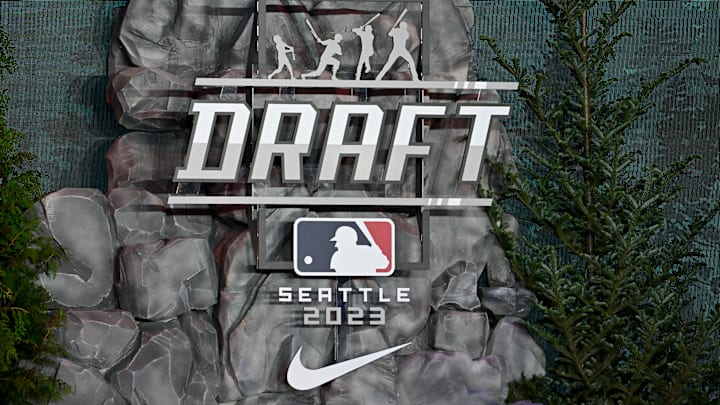Just when you think you have the Brewers figured out, they do something incredibly unpredictable. That's how the first night of the 2023 MLB Draft unfolded on Sunday night.
For the past several years, ever since Tod Johnson took over as scouting director and ever since the David Stearns-Matt Arnold era arrived in Milwaukee, the Brewers have prioritized up the middle college athletes, either as hitters with plus hit tools or as pitchers with excellent pitch data. That's been their model for years.
They blew up that model on Day 1 of the 2023 Draft.
The Brewers went against their historical tendencies in every possible way through their first few picks in the MLB Draft, but it addressed their organizational needs.
Prior to the Draft, we wrote about the 3 biggest needs the Brewers had to address in this year's Draft. Apparently, the Brewers listened. They addressed each of their three biggest needs with their first three selections.
With their first pick, the Brewers selected Wake Forest third baseman Brock Wilken. While a college hitter certainly fits the mold, a corner infielder with a power-over-hit profile is not. Corner infield was one of the Brewers biggest needs in this Draft.
The Brewers prefer safer college bats with plus hit tools, depending on more power to arrive as they just make enough contact. Instead, the Brewers took Wilken, who is all power, earning 70 raw power grades on the 20-80 scouting scale. His hit tool grades as a 45, which is below average.
Wilken has 40 home run potential as a right handed hitting corner infielder. He has the arm strength for third base but could fall back on being a first baseman. The Brewers don't have many true power hitters in their system, and Wilken immediately has the most power in the minor league system upon signing.
Another one of their biggest needs was high upside pitching. They sure grabbed some of that with Josh Knoth in the Comp A Round. Dipping their toes in the high school pitching ranks is something they haven't done on Day 1 since 2017 when they selected Caden Lemons and that pick was a massive failure.
There is immense risk in the high school pitching demographic, but the potential reward here is equally immense. Knoth can throw 99 MPH and spin a 3,100 RPM curveball. His pitch metrics are off the charts and the Brewers pitching lab is going to have a lot of fun working with him. He's earned comparisons to Lance McCullers, which would be a great outcome for Milwaukee if he has a career like that. But he's a long way away, just 17 years old, it'll be a while before we see Knoth in Milwaukee, but the upside to dream on is immense.
Then in the 2nd round, the Brewers seemingly went back to their draft model we've seen in recent years, but only sort of. They selected Mike Boeve from mid-major Nebraska-Omaha of the Summit League. Boeve has an exceptional hit tool, which is again one of the Brewers biggest needs, pure hitting talent. But he's also a corner infielder, lacking the speed and athleticism to lock down a middle infield spot. His speed isn't great, and is likely a corner player with little to no home run power, which is unusual for a corner player.
Boeve makes a ton of contact, but would have more value as an up the middle player. Perhaps there's more power he could tap into, but the lefty is more of a slap hitter looking to get on base, even though he's not much of a basestealing threat.
The Brewers took two corner infielders, one with a ton of home run power and one with great contact skills, and a very high upside pitcher. They addressed all three of their biggest needs on the first night of the Draft, but it involved completely upending their previous draft philosophy of up the middle athletes with strong hit tools and college arms.
Time will tell if this draft strategy will work out. It'll take several years, especially in the case of Knoth. The Brewers addressed their needs, so no complaints can be made about that. It just took a little different philosophy to get it done.
